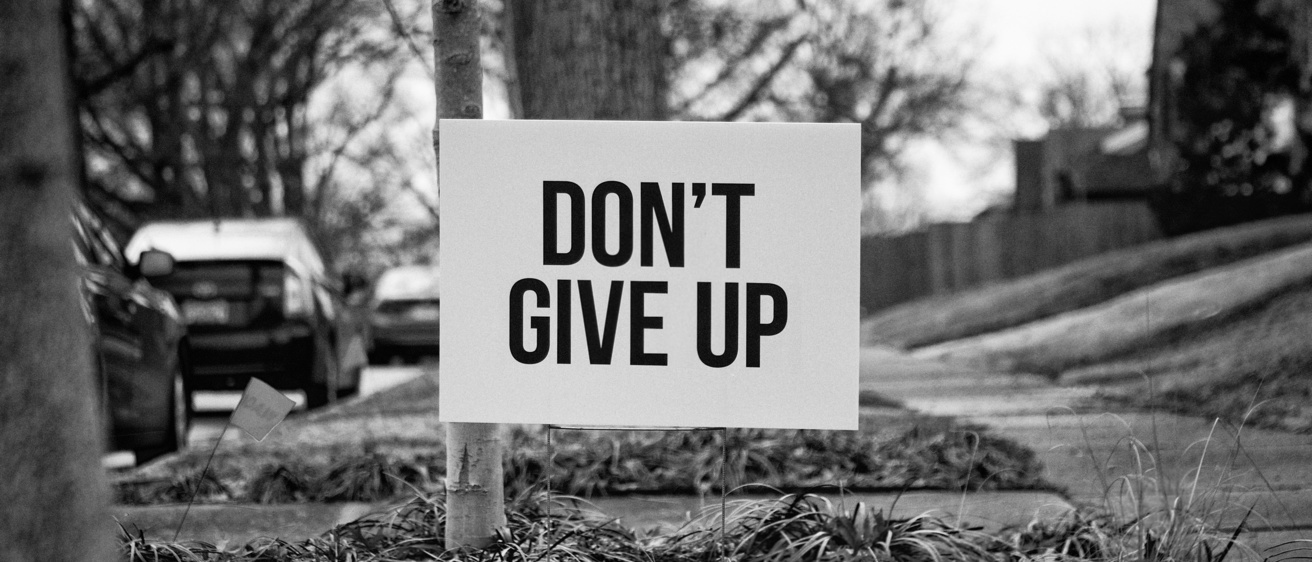“The problem with people today is that aren’t tough enough; they need to show some grit!”
If you’ve heard this muttered lately, the 1969 movie poster with quintessential (Iowa born) cowboy John Wayne may have come to mind. Or, if you are a bit younger, the 2010 Coen Brothers True Grit reboot with Jeff Bridges. Whatever image it stirs, the meaning is the same; some complain that we don’t handle hard times as well as we did in a mythical, heroic past.
That claim is not at all what Angela Duckworth, psychologist and professor at the University of Pennsylvania, intended when she defined grit as a psychological characteristic in her research and then in popular media. With her first publication (2007), her viral TED talk (2013), and her bestselling book Grit (2016), she defined grit as a combination of passion and persistence that helps boost academic achievement. Her definition suggests that successful people find areas of interest, develop those interests into a passion, and keep going despite inevitable setbacks. Although her initial focus was on students, research has explored grit as a predictor of workplace success, too.
Grit is hot topic, with defenders and critics. Critics argue over research methodology and the different components of grit. Do we need passion to be successful at school and work? What about those days when we just aren’t feeling passion, or we get stuck in a loop doing tasks we know we must do but don’t love? I am procrastinating my 2022 tax return to write this, so lack of passion is top of mind. Perhaps most relevant to the burnout that many of us might feel from the COVID-19 pandemic and its aftermath: Is it true that we all need to “toughen up?” In short, no. We don’t need to be tougher; we just need to find ways to take small steps forward.
Iowa State University psychologist Marcus Credé reviewed 88 studies on grit and found that the most critical factor is perseverance. Passions may come and go, and sometimes we must do things that don’t feel great to us. What predicts achievement best is sticking with a goal over time and getting tasks done even when we don’t feel like it.
Duckworth won’t argue on the importance of persistence. On her LinkedIn page, she reposted a reflection on resilience by school administrator Emily Kingsley. Kingsley wrote about her struggling students and the advice she has for them. She argues that the most powerful thing we can do is acknowledge that life can be tough, and we can still get through it. She says the magic word is “and.” She writes that what her students need is “… years of therapy and mental health care that their insurance will never cover. They need stable housing, better health care, braces, and acne medication.” She continued, “What they have is me. What I have is and. So that’s what I tell them. You can feel sad and you can do five math problems. You can be nervous and write the last paragraph of your essay ….” Read the full post.
As some of us struggle to get to feeling our new normal, and find ourselves feeling sad, anxious, or even angry, we can use what we know about persistence. We know that we don’t have to feel passionate or excited to get things done. We can still succeed. Just like me and my taxes, I don’t have to enjoy it to file on time. The real challenge is to move forward when we “aren’t feeling it.”
My two favorite approaches are small goals and accountability conversations.
Small Goals. While some people talk about having audacious goals, there are times in my life when getting out of bed on time feels audacious enough. I set small goals that focus on getting started, an idea that is a central part of David Allen’s Getting Things Done system. For example: “Start that difficult project by 9 a.m. and work on it for 15 minutes.” Starting a task is often the hardest part, so a “start at this time” goal often propels me forward in ways that I wouldn’t have had the passion to plan, let alone do. With my taxes, I promised myself last night I would just enter the most basic income information. That small goal energized me and I put in a few hours of work.
Accountability Conversations. We don’t have to complete the tasks that feel hard by ourselves. There are people all around our community who want to help us find our way to the “and.” For me, it's talking to my wife – complaining about the complexity, the tediousness of it all, and (see, there is that “and”) agreeing on when the work will get done. After some whining (on my end) and suggestions (on hers), I was prepared to return to tax purgatory.
When you aren’t feeling it, as I have been with my taxes, recognize that you can feel that way and still get things done. Leaning into small goals and people around you can be just what you need to keep going. That’s the grit we need. We may not feel passionate, or tough, but we can feel good about making progress!
